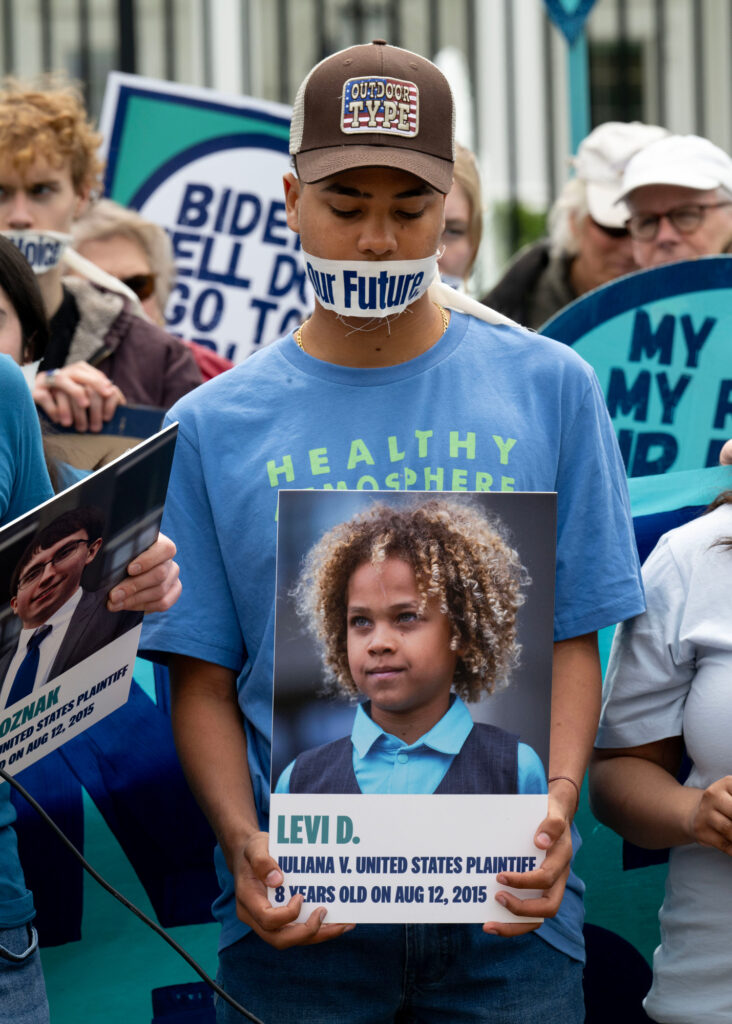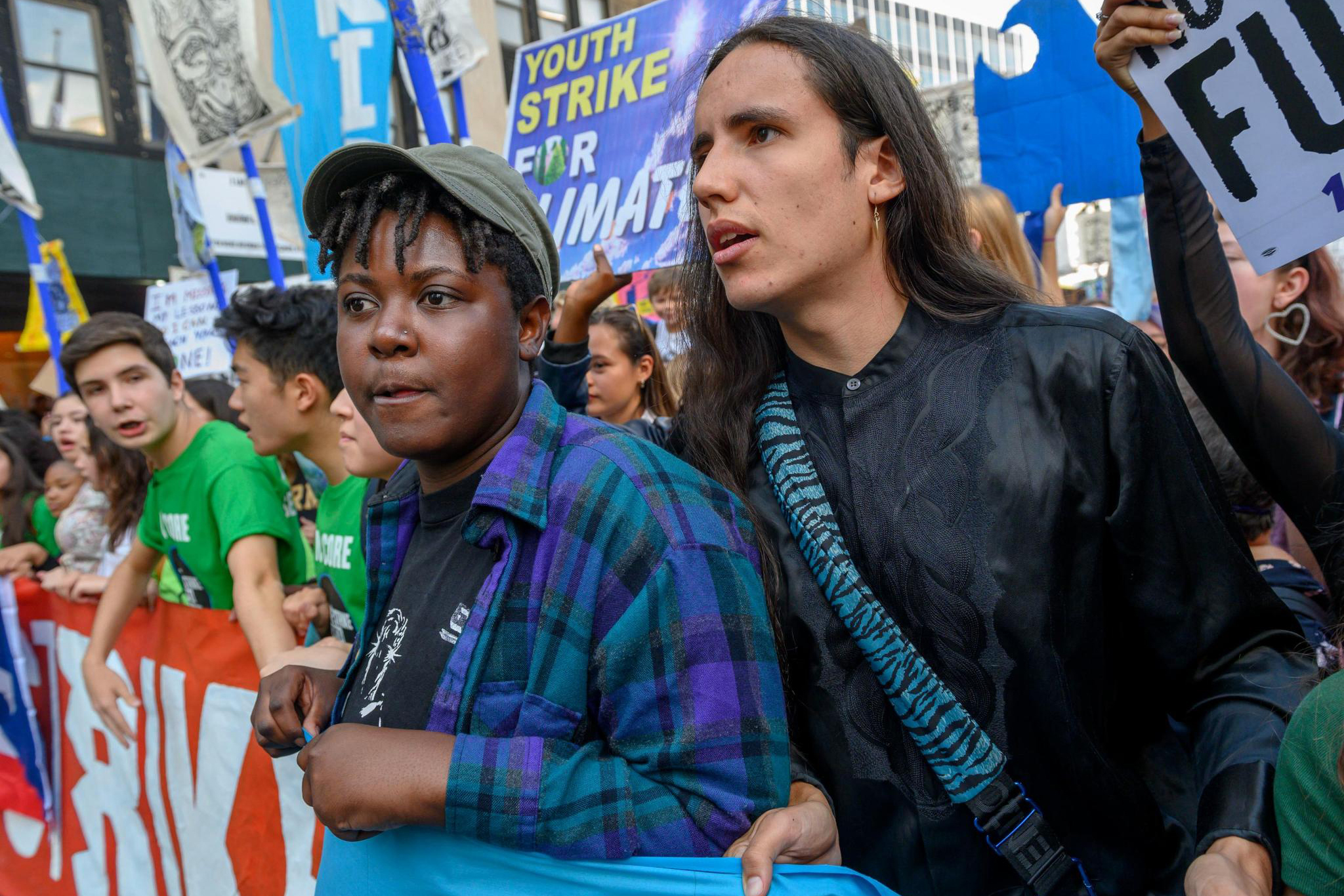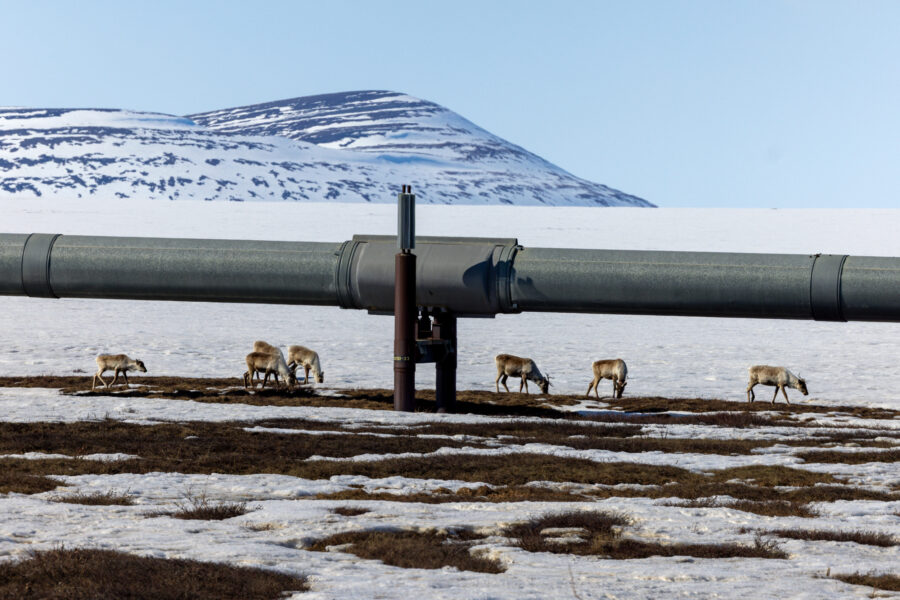Young climate activists who brought a landmark constitutional lawsuit against the U.S. government 10 years ago are taking their quest for justice to an international tribunal.
The nonprofit law firm, Our Children’s Trust, and 15 of the original 21 plaintiffs in the case Juliana et al. v. United States filed a petition Sept. 23 with the Inter-American Commission on Human Rights that accuses the United States government of violating international law through its perpetuation of a fossil fuel-based energy system and requests an investigation.
“For over 50 years, the U.S. government has knowingly endangered our lives by driving the fossil fuel system that is destroying our climate. This is not neglect — it is deliberate harm,” said petitioner Levi Draheim, now 18, in a release provided by Our Children’s Trust. “The government’s long-standing actions have violated our rights to life, health, and dignity, and young people like me are paying the price.”
The petition comes after a pair of historic advisory opinions on climate change issued in July by the Inter-American Court on Human Rights and the International Court of Justice, and a similarly groundbreaking climate opinion from the International Tribunal on the Law of the Sea in 2024 that recognize climate change as an “existential” threat to humanity and ecosystems.
All the opinions stated that countries have legal obligations under international law to address it in accordance with climate science. The Inter-American Court opinion declared, for the first time at the international level, that there is a right to a healthy climate, and the International Court of Justice said that governments that fail to regulate emissions from private actors and that continue to promote fossil fuels could be committing internationally wrongful acts.
While the advisory opinions do not call out any specific country by name, they do clarify the legal obligations of countries under existing sources of international law, such as human rights treaties and U.N. legal instruments as well as customary international law. The Our Children’s Trust legal team say it is clear that the international bodies indicate that the United States, the largest cumulative emitter of greenhouse gases and largest oil and gas producer in the world, is in breach of its legal obligations on climate change.
“The advisory opinions have come out and basically said that this behavior by the U.S. has been a violation of existing law. It’s been a violation of international human rights law. It’s been a violation of customary international law. So what the government has been doing for five decades is illegal,” Kelly Matheson, deputy director of global strategy for Our Children’s Trust, told Inside Climate News.
The U.S. Department of Justice declined to comment.
The petition by young activists, many of whom are now in their 20s, to the Inter-American Commission on Human Rights is the first legal action of its kind to arise following the climate advisory opinions issued this summer, and it is the first case seeking to apply those rulings to hold accountable a major-emitting state. It argues that the United States, which is responsible for over a quarter of global carbon dioxide emissions from 1850 to 2012, has not just contributed to climate change but has “played a leading role” in causing it.

And though the petition focuses on the historical conduct of the federal government over the past five decades, lawyers for the youth petitioners said recent actions of the current Trump administration on climate and energy make their case even more salient and urgent. On the same day the activists’ petition was filed, President Trump doubled down on his rhetoric denying the reality of climate change and attacking renewable energy in a rambling address at the U.N. General Assembly in New York.
Trump falsely claimed that climate change is the “greatest con job ever perpetrated on the world” and that wind and solar energy is a “green energy scam.”
“If ever there was a time to hold the United States federal government responsible for its outsized culpability in causing climate change and peddling fossil fuel pollution around the world, it is now,” Julia Olson, chief legal counsel for Our Children’s Trust, which is based in Oregon, said in a press release. “If there’s a scam here, it’s the White House pushing fossil fuels while denying science and endangering the lives of children.”
The 130-page petition asserts that the United States, for more than half a century, has knowingly perpetuated a fossil fuel-based energy system that is substantially contributing to the climate emergency, which disproportionately burdens children and young people. “Every young person bringing this action was born into the climate emergency and lives each day unable to fully enjoy the right to a healthy climate, and the many rights that depend on it,” the petition states.
This story is funded by readers like you.
Our nonprofit newsroom provides award-winning climate coverage free of charge and advertising. We rely on donations from readers like you to keep going. Please donate now to support our work.
Donate NowThe action alleges the United States is violating international human rights law, particularly the American Declaration on the Rights and Duties of Man—a foundational instrument adopted in 1948 of the Inter-American human rights system. The United States, as a member of the Organization of American States, is bound by that declaration.
Somewhat broader than the suit in the United States, the claim before the international tribunal specifically alleges infringements on the rights to life, health, equality, private and family life, home and property, cultural life, special protections for children, access to justice and effective remedies, dignity and a healthy climate.
Juliana v. United States was filed in 2015 and argued that the U.S. government was violating the constitutional rights of young people through its systemic policies and actions promoting fossil fuels and worsening climate change. The case ended earlier this year when the Supreme Court declined to hear the case.
Lawyers for the youth said the federal government filed seven emergency pre-trial petitions—known as petitions for writ of mandamus—to block the case, which they said were more “than in any other case in U.S. history.”
“The U.S. Department of Justice used extraordinary measures to deny these young people access to justice,” Matheson said.
This new filing is an opportunity, she added, for the next generation to be heard and to present the science before a quasi-judicial body.
“The big ask is to have a public hearing,” James May, a law professor at Washburn University and one of the petition’s authors, told Inside Climate News. “That’s a proxy for what [the Juliana plaintiffs] didn’t get in their 10-year-long journey in American courts.”
The Inter-American Commission on Human Rights, headquartered in Washington, D.C., can refer cases to the Inter-American Court on Human Rights. The U.S. government, however, does not recognize that court’s jurisdiction so in this case the youths’ petition would start and end with the commission.
The youth are asking the commission to conduct an investigation including public hearings and a country site visit. They want the commission to declare that the United States has violated petitioners’ rights, issue recommendations to remedy the violations and to monitor compliance. They have also requested that the court makes the case a top priority.
The Inter-American Commission’s recommendations are not legally binding. But legal experts said they could be influential guidance for other courts, and perhaps for U.S. policymakers and future administrations.
May told Inside Climate News he thinks this action “has the potential to be the most significant climate case that’s ever been brought.”
“It’s giving an international tribunal the opportunity to provide a playbook for a country to take responsible steps to address the climate crisis, and that playbook would be written for the country that’s most responsible for the climate emergency,” he explained. “And so from there it could be a blueprint of sorts for tribunals and courts at international and national levels.”
May added: “Those two advisory opinions, they’re screaming that the house is on fire, and that someone should call the fire department. And that’s what we just did.”
Matheson said this latest legal effort was taken to establish facts on the ground and remedies now. “Under the Trump administration it may not make a difference. But under future administrations, it could,” she said.
“If we get strong recommendations, then those can be leveraged for implementation,” Matheson said. “And whether the Trump administration listens or not, you have a legal victory and you have a moral victory, and you can continue to use those victories to push the advocacy forward.”
Matheson noted that, with the climate change advisory opinions, “the law has finally caught up to the science.”
About This Story
Perhaps you noticed: This story, like all the news we publish, is free to read. That’s because Inside Climate News is a 501c3 nonprofit organization. We do not charge a subscription fee, lock our news behind a paywall, or clutter our website with ads. We make our news on climate and the environment freely available to you and anyone who wants it.
That’s not all. We also share our news for free with scores of other media organizations around the country. Many of them can’t afford to do environmental journalism of their own. We’ve built bureaus from coast to coast to report local stories, collaborate with local newsrooms and co-publish articles so that this vital work is shared as widely as possible.
Two of us launched ICN in 2007. Six years later we earned a Pulitzer Prize for National Reporting, and now we run the oldest and largest dedicated climate newsroom in the nation. We tell the story in all its complexity. We hold polluters accountable. We expose environmental injustice. We debunk misinformation. We scrutinize solutions and inspire action.
Donations from readers like you fund every aspect of what we do. If you don’t already, will you support our ongoing work, our reporting on the biggest crisis facing our planet, and help us reach even more readers in more places?
Please take a moment to make a tax-deductible donation. Every one of them makes a difference.
Thank you,











